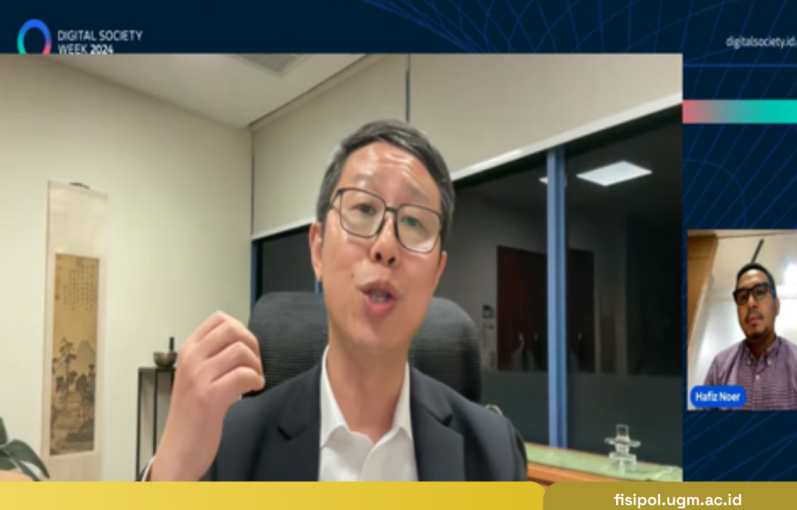
Yogyakarta, 1 October 2024–The development of digital technology, which is increasingly sophisticated, requires the policy framework to develop more adaptively and solution-centered. This is because the benefits that come from technological advances are also accompanied by consequences that can have negative consequences. Irfan Dwi Putra, a researcher from the Center for Digital Society (CfDS) UGM, expressed his concern regarding one of the artificial intelligence (AI)-based technologies, deepfake. “There have been many losses caused by deepfake and involving public figures. Deepfake is widely misused for fraud,” said Irfan on the first day of Digital Society Week (DSW) 2024, organized by CfDS UGM online on Tuesday (1/10).
According to Irfan, there are three approaches to deepfake mitigation: technical, educational, and legal. Ideally, integrating the three approaches is needed to mitigate the dangers of deepfakes. However, Irfan believes that the most urgent approach to implement is the legal approach.
Currently, several regulations accommodate the issue of AI abuse. However, the existing regulations are still insufficient because they are curative or can only be applied in the event of an adverse case. According to Irfan, preventive regulations need to be implemented. “For example, the European Union has a disclosure and labelling policy. Deployers of AI-based audio-visual content must include information that AI created the content,” he said.
Besides Irfan, Jack Linchuan Qiu, a Nanyang Technological University (NTU) professor, also participated in the research dissemination. Regarding formulating public policy on digital technology, Jack emphasized that innovation must be balanced and in line with public interests. Policymakers should also consider inclusivity and social impact to address issues such as the digital divide and disinformation. This aligns with the 9th Sustainable Development Goal (SDG) on Industry, Innovation and Infrastructure and the 10th SDG on Reduced Inequalities.
Furthermore, Jack explained that the digital era has placed us at the intersection of three major paradigms: liberalism, realism, and constructivism. “These three perspectives provide valuable insights to understand how policies related to digital technology can be developed holistically and responsive to social and political developments,” Jack said.
